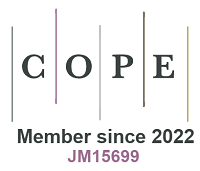
Editor in Materials Chemistry
Department of Chemistry, Laboratory of Advanced Materials, Shanghai Key Laboratory of Molecular Catalysis and Innovative Materials, and State Key Laboratory of Molecular Engineering of Polymers, Fudan University, Shanghai, China.
Department of Chemistry, Laboratory of Advanced Materials, Shanghai Key Laboratory of Molecular Catalysis and Innovative Materials, and State Key Laboratory of Molecular Engineering of Polymers, Fudan University, Shanghai, China.
HomePage
Bio
Prof. Wei Li is a Professor, Vice Director of Department of Chemistry of Fudan University.
He obtained his bachelor degree from Heilongjiang University, doctor degree from Fudan University, China in 2008 and 2014, respectively. From 2014 to 2016, he worked as Postdoctoral fellow in University of Toronto, Canada, and Institute of Basic Sciences, Republic of Korea, respectively. After returning to Department of Chemistry of Fudan University, he became an associate professor in 2016 and a full professor from 2019 to now.
He is a member of International Mesostructured Materials Association (IMMA). He has received many awards such as first prize in the China's State Natural Science Award in 2020 (2/4), Yangtze River Young Scholar (2019), Thousand Talents Program in Shanghai (2018), Shanghai Rising-Star Program (2017), Shanghai Oriental Scholars (2017), Natural Science of the Ministry of Education of China (First Grade Prize, 2017, 3/4). He is the editorial board member or young editorial board member of Adv. Mater. Interfaces, Chin. Chem. Lett., Acta Physico-Chimica Sinica, Journal of Electrochemistry, and so on. He was listed as one of highly cited researchers by Clarivate Analytics (2019-2021).
He has published more than160 SCI papers in Natl. Sci. Rev., J. Am. Chem. Soc., Angew. Chem. Int. Ed., Adv. Mater, Nature Commun., Sci. Adv., Chem, Matter, Nature Rev. Mater., Chem. Rev., Chem. Soc. Rev., Acc. Chem. Res., etc. with more than 16,000 citations and an H index of 60 and also is a coordinator and a principal leader of more than 10 research and collaborative projects.
Prof. Li’s current research fields include the self-assembly synthesis chemistry, synthesis of mesoporous materials for catalysis, energy conversion and storage and electronic devices.
He obtained his bachelor degree from Heilongjiang University, doctor degree from Fudan University, China in 2008 and 2014, respectively. From 2014 to 2016, he worked as Postdoctoral fellow in University of Toronto, Canada, and Institute of Basic Sciences, Republic of Korea, respectively. After returning to Department of Chemistry of Fudan University, he became an associate professor in 2016 and a full professor from 2019 to now.
He is a member of International Mesostructured Materials Association (IMMA). He has received many awards such as first prize in the China's State Natural Science Award in 2020 (2/4), Yangtze River Young Scholar (2019), Thousand Talents Program in Shanghai (2018), Shanghai Rising-Star Program (2017), Shanghai Oriental Scholars (2017), Natural Science of the Ministry of Education of China (First Grade Prize, 2017, 3/4). He is the editorial board member or young editorial board member of Adv. Mater. Interfaces, Chin. Chem. Lett., Acta Physico-Chimica Sinica, Journal of Electrochemistry, and so on. He was listed as one of highly cited researchers by Clarivate Analytics (2019-2021).
He has published more than160 SCI papers in Natl. Sci. Rev., J. Am. Chem. Soc., Angew. Chem. Int. Ed., Adv. Mater, Nature Commun., Sci. Adv., Chem, Matter, Nature Rev. Mater., Chem. Rev., Chem. Soc. Rev., Acc. Chem. Res., etc. with more than 16,000 citations and an H index of 60 and also is a coordinator and a principal leader of more than 10 research and collaborative projects.
Prof. Li’s current research fields include the self-assembly synthesis chemistry, synthesis of mesoporous materials for catalysis, energy conversion and storage and electronic devices.
Research Interests:
synthesis chemistry, mesoporous materials, self-assembly, energy applications.









